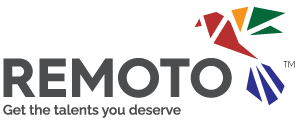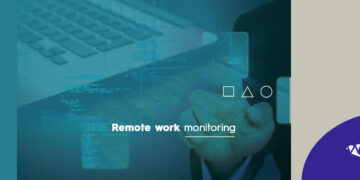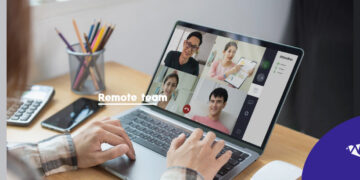Have you ever considered what makes companies excel in the global business landscape?
In today’s fast-paced US business world, where innovation and creativity are key differentiators, viewing challenges from authentic perspectives and generating unique ideas can provide companies with limitless opportunities to solve problems. Encouraging boldness in your business can give you an edge over competitors.
HR leaders are pivotal in bringing innovation and creativity to organizations, as they can nurture a people-centric culture and empower remote employees to excel.
By building cultures of experimentation and risk-taking; fostering cross-cultural collaboration and knowledge sharing; providing training and development opportunities; and celebrating successes, they create a diverse and inclusive environment where everyone can reach their full potential.
Building on this idea, we’ll take a closer look at the role of HR in driving innovation and creativity in the workplace. We’ll also discuss strategies to inspire remote teams to break away from conventional thought and drive business prosperity.
HR: The Magician of Innovation and Creativity
Are you wondering what the role of HR is in driving innovation, creativity, and success in the workplace?
Just as magicians captivate their audience by conjuring the seemingly impossible, HR leaders can ignite the spark of imagination and empower remote employees to reach their full potential.
When HR specialists use their expertise, they can cast a spell on your employees to unlock their ability to think outside the box. To do this, HR resources coordinators, talent development and acquisition specialists, and recruiters can:
- Shape an organizational culture that harmonizes with business goals, disruptive innovation, creative thinking, problem solving, open communication, collaboration, healthy work-life balance, and an environment where employees feel truly appreciated.
- Promote employees’ engagement through recognition and career development opportunities, like workshops or seminars, and make them part of your HR strategy. For example, if your employees attend a design thinking trends conference, they can get inspired, and you can strengthen workplace innovation and productivity.
- Identify committed employees with strong ethics and values who can take advantage of mentorship initiatives to make them want to say in the company. They can contribute with innovative idea-generation initiatives and excellent teamwork skills.
HR Strategies to Foster Innovation and Creativity
As we explained before, creativity and innovation are essential for any business wanting to achieve success and growth in the US. With numerous techniques available in their toolbox, HR specialists can choose from a multitude of strategies to infuse inspiration in the workplace.
Let’s take a closer look at some of these strategies.
Building a Culture of Experimentation and Risk-Taking
Do you want to know how to create a culture that fosters experimentation and avoids risk aversion? The answer lies in HR leaders. With their influence, guidance, and leadership support, your remote workers can be empowered to unleash their imagination and strive for greatness.
Here are three tips for building a culture of experimentation and risk-taking according to your company’s needs.
- Encouraging employees to take risks and learn from failures: Inviting employees to take risks and learn from failures is an essential aspect of change management and the first step in creating a great company culture. This includes motivating remote workers to embrace boldness and step out of their comfort zone.
- Assuming a “fail-fast” mentality: Have you ever had an innovative idea for a product management project that could be revolutionary for your company? With the fail-fast mentality, you can test your idea and determine if it’s viable before investing time and resources. When you embrace this approach, your business can encourage experimentation and risk-taking without fear of failure.
- Creating an environment that supports experimentation: You or your HR department can provide remote teams with resources to imagine, experiment, and create. These resources include not only time and budget but also proper technologies.
Encouraging Cross-Functional Collaboration and Knowledge Sharing
Stimulating cross-functional collaboration and knowledge sharing can help promote innovation and thought diversity, bringing new perspectives, insights, and ways of thinking to the table.
Let’s consider these three HR strategies:
- Facilitating cross-departmental communication and collaboration: Breaking down departmental barriers and fostering team communication and collaboration enable the tackling of complex problems, leading to a wealth of new opportunities and insights.
- Arranging knowledge-sharing events: HR departments can organize knowledge-sharing events in your company to break down divisions between teams, reinforcing assertive communication and sincere collaboration among coworkers.
- Promoting a diverse and inclusive workforce to uncover new perspectives: Diversity and inclusion are requirements for innovation and creativity; therefore, bringing together employees from different cultural backgrounds can foster unconventional thinking and enhance creative problem-solving.
Get ready to be blown away by a must-watch TED talk that reveals how collaboration between different cultures can help your team reach new heights.
Providing Opportunities for Training and Development
To stay competitive in an intense market, it’s crucial for remote employees to continuously improve their skills and knowledge continuously. HR professionals and staffing agencies can create training and development opportunities to improve job performance, satisfaction, and career prospects.
Here are three HR strategies that you can use:
- Offering training programs to develop skills and expertise: HR can plan and execute workshops, lectures, webinars, and seminars to equip staff with advanced knowledge and best practices relevant to their role and department.
- Encourage employees to attend industry conferences: These events can help remote workers to foster relations with other colleagues, gain new insights, get more inspiration, and learn from the experts in their field. HR departments can allocate resources in the staffing plan to financially support employees to attend these events.
- Supporting continuous learning and growth: HR can support these goals by providing mentoring and coaching opportunities for all employees. By doing this, they can be more qualified, productive, and efficient.
Celebrating and Recognizing Innovative Ideas and Successes
To foster employees’ innovation and creativity, HR professionals need to create an environment that values and recognizes their contributions. Recognizing and appreciating remote workers’ contributions can improve morale, engagement, and organizational performance.
Follow these three HR strategies to help create a culture that celebrates and recognizes innovative ideas and successes!
- Establish recognition and rewarding systems: You can create these systems to acknowledge and promote innovative ideas.
- Share success stories: Marketing and HR departments can collaborate to craft success stories related to how innovation and creativity are part of your corporate culture. Additionally, involving employees in sharing their success stories can lead to a more inclusive company culture.
- Encourage your employees to take pride in their excellent work: Inspire your remote workers and allow them to feel proud of their accomplishments. Some employees may not realize the impact of their contributions, which, unfortunately, can lead to increased turnover. To avoid this, you can motivate your employees to take pride in their achievements and celebrate them.
Takeaway
Innovation and creativity have become essential in achieving success in the US. HR leaders are crucial in promoting these values by fostering a culture of experimentation, collaboration, learning, and appreciation.
Have you embraced these strategies in your company yet? We’d love to hear about your experience and how they’ve helped your remote team!














